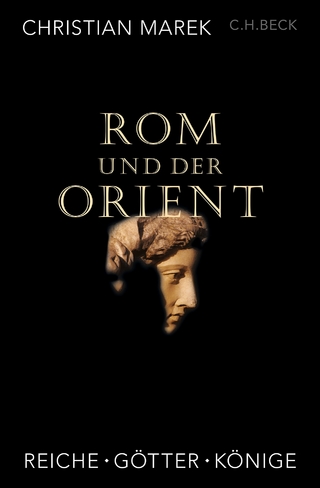
Off-Stage Groups in Athenian Drama
Seiten
2024
Oxford University Press (Verlag)
978-0-19-888722-5 (ISBN)
Oxford University Press (Verlag)
978-0-19-888722-5 (ISBN)
Off-Stage Groups in Athenian Drama analyses how off-stage groups in fifth- and early fourth-century tragedy and comedy influence and respond to events on stage, and how characters interact with these groups. Alexandra Hardwick argues that Athenian drama engages with early ideas of group psychology, providing ways to explore collective emotion.
Despite the crucial roles they often play, no study yet compares the off-stage assemblies, armies, and populations found in surviving Athenian dramatic works. Covering fifth- and early fourth-century tragedy and comedy, Off-Stage Groups in Athenian Drama analyses how off-stage groups influence and respond to events on stage, and how characters interact with these groups. Drama exploits these groups' off-stage nature by depicting them through different characters' viewpoints: characters often struggle to define, predict, or control off-stage groups, which obscures and challenges the audience's ability to interpret them. The interaction between multivalent and sometimes contradictory narratives of off-stage groups demands a new interpretive framework. Off-Stage Groups in Athenian Drama provides this framework, offering new readings of several prominent comedies and tragedies. However, the importance of this framework extends beyond drama. The first chapter surveys depictions of group decision-making in fifth-century prose, in order to demonstrate how Athenian drama responds to prose depictions of group psychology. Athenian drama engages with the early ideas of group psychology circulating in fifth- and early fourth-century Athens; it creates fictive worlds where stereotypical depictions of collective emotion can be probed, explored and taken to their logical extremes. Studying off-stage groups therefore allows us to rethink our understanding of narrative, politics, and social psychology in drama, and the ways in which these fields intersect.
Despite the crucial roles they often play, no study yet compares the off-stage assemblies, armies, and populations found in surviving Athenian dramatic works. Covering fifth- and early fourth-century tragedy and comedy, Off-Stage Groups in Athenian Drama analyses how off-stage groups influence and respond to events on stage, and how characters interact with these groups. Drama exploits these groups' off-stage nature by depicting them through different characters' viewpoints: characters often struggle to define, predict, or control off-stage groups, which obscures and challenges the audience's ability to interpret them. The interaction between multivalent and sometimes contradictory narratives of off-stage groups demands a new interpretive framework. Off-Stage Groups in Athenian Drama provides this framework, offering new readings of several prominent comedies and tragedies. However, the importance of this framework extends beyond drama. The first chapter surveys depictions of group decision-making in fifth-century prose, in order to demonstrate how Athenian drama responds to prose depictions of group psychology. Athenian drama engages with the early ideas of group psychology circulating in fifth- and early fourth-century Athens; it creates fictive worlds where stereotypical depictions of collective emotion can be probed, explored and taken to their logical extremes. Studying off-stage groups therefore allows us to rethink our understanding of narrative, politics, and social psychology in drama, and the ways in which these fields intersect.
Alexandra Hardwick is a Stipendiary Lecturer at Corpus Christi College, Oxford, where she teaches Greek literature, and at Balliol College, Oxford, where she teaches Greek and Latin languages. She completed her doctoral degree at Oxford in 2021. Her research applies ideas from early modern and contemporary social science to ancient Greek texts, especially depictions of group emotion and decision-making in drama, historiography, and hexameter poetry from Homer to the imperial period.
Introduction
1: Motifs of Group Psychology in Classical Greek Prose
2: Collective Political Decision-Making in Tragedy
3: Collective Political Decision-Making in Aristophanes
4: Off-Stage Populations
5: 'Political' Armies in Tragedy
6: Female Groups
7: Conclusions
| Erscheinungsdatum | 17.02.2024 |
|---|---|
| Reihe/Serie | Oxford Classical Monographs |
| Verlagsort | Oxford |
| Sprache | englisch |
| Maße | 160 x 240 mm |
| Gewicht | 542 g |
| Themenwelt | Geschichte ► Allgemeine Geschichte ► Altertum / Antike |
| Geisteswissenschaften ► Sprach- / Literaturwissenschaft ► Anglistik / Amerikanistik | |
| Geisteswissenschaften ► Sprach- / Literaturwissenschaft ► Literaturwissenschaft | |
| ISBN-10 | 0-19-888722-1 / 0198887221 |
| ISBN-13 | 978-0-19-888722-5 / 9780198887225 |
| Zustand | Neuware |
| Informationen gemäß Produktsicherheitsverordnung (GPSR) | |
| Haben Sie eine Frage zum Produkt? |
Mehr entdecken
aus dem Bereich
aus dem Bereich


